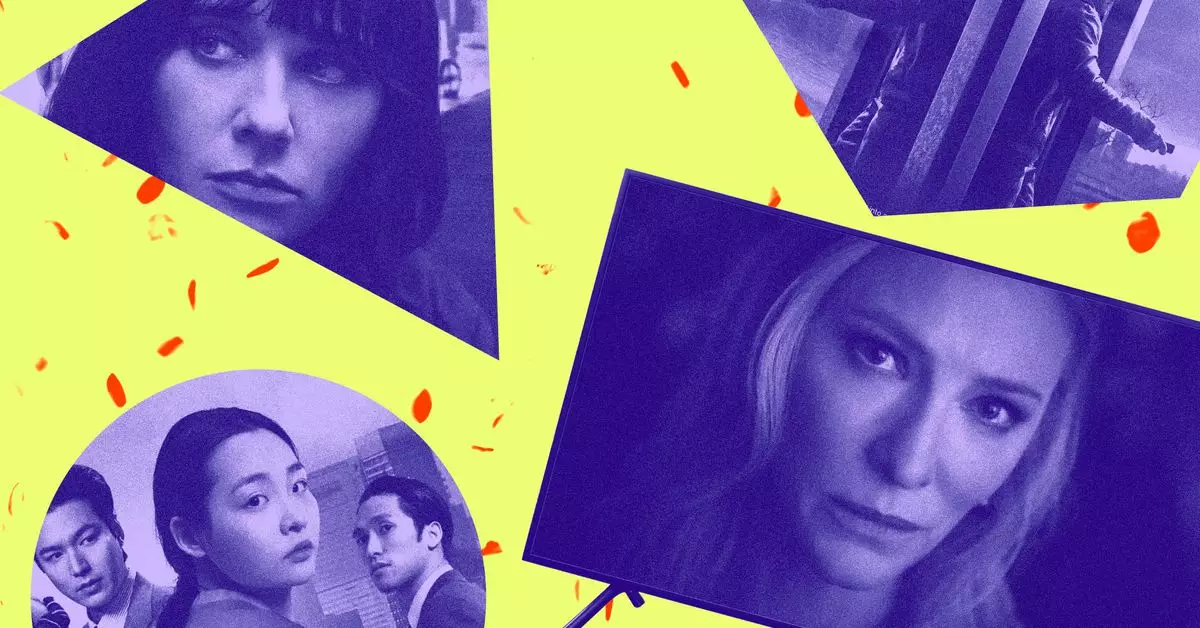As we step into 2024, Apple TV Plus has transformed its reputation, establishing itself as a premier destination for science fiction enthusiasts and adventurous viewers alike. With a diverse array of content that ranges from gripping mysteries to reflective dramas, the streaming service has something for everyone. This article delves into some standout series, celebrating both their unique narratives and the rich emotional landscapes they explore.
One of the most compelling entries in Apple’s sci-fi lineup this year is “Constellation.” The series, anchored by the striking performance of Noomi Rapace as Jo, an astronaut who narrowly survives a catastrophic incident on the International Space Station, takes viewers on an unsettling journey. Upon her return to Earth, Jo discovers a reality that has vastly altered during her time in space. The show digs deep into themes of isolation, reality, and the psychological impacts of trauma, effectively engaging audiences with its dark undertones and enigmatic atmosphere. “Constellation” invites viewers to question their own perceptions of what is real, making it a thought-provoking addition to the genre.
Unraveling the Multiverse with Dark Matter
Based on Blake Crouch’s novel, “Dark Matter” expertly weaves a complex narrative that revolves around the concept of parallel universes. The lead character, Jason, portrayed by Joel Edgerton, embarks on a desperate quest as he grapples with the consequences of having kidnapped himself. The two contrasting versions of Jason—a humble professor and a wealthy, lonely version—illustrate an all-too-human struggle with ambition and fulfillment. Despite the multiverse trope being highly popular, the nuanced storytelling and emotional depth of the show elevate it beyond mere genre conventions, prompting viewers to reflect on their own choices and identities.
Directed by the acclaimed Alfonso Cuarón, “Disclaimer” is a gripping psychological thriller that showcases Cate Blanchett as a journalist whose life unravels when she confronts revelations about her past. The narrative tantalizingly intertwines different times and perspectives, exploring the implications of a mysterious manuscript that blurs the lines of truth. Cuarón’s adept storytelling invites audiences into a labyrinth of moral quandaries and psychological complexity, making “Disclaimer” not just a thriller but a profound commentary on memory, perception, and the weight of history.
Continuing from its stunning first season, “Pachinko” further explores Min Jin Lee’s historical narrative while expanding its scope. It weaves together a multilingual tapestry that traverses geographical and temporal boundaries, illuminating a rich family saga across generations. The narrative’s focus on significant periods—the aftermath of World War II in Osaka and the vibrant culture of Tokyo in 1989—effectively paints a portrait of resilience, hope, and the struggles of identity. The show’s ability to connect personal tales with larger historical events enhances its emotional resonance, captivating audiences and inviting them into a world of intricate storytelling.
While it’s not entirely new, “Severance” is at the brink of returning with Season 2, providing ample opportunity for viewers to dive deeper into its unsettling universe. Set in the enigmatic Lumon Industries, the show explores a chilling concept where employees undergo a procedure that bifurcates their consciousness, separating their work and personal lives. Season 1 cleverly established a gripping mystery with its unsettling environment, and as the plot thickens, fans are eager to see how the complex narrative unfolds and how it navigates themes of autonomy and existential dread.
At first glance, “Silo” may appear to be part of an oversaturated post-apocalyptic genre, but it offers a deeper, more intricate mystery within its bleak façade. As the storyline expands beyond the merely logistic elements of survival, it focuses on elaborating a rich world with deep histories and societal implications. The connection it maintains with the source material, Hugh Howey’s trilogy, ensures that the narrative retains its adventurous momentum, leaving audiences eager for more revelations and complexities to be unraveled in the subsequent seasons.
“Sunny” introduces a delightful twist to the murder mystery genre by blending retrofuturism with engaging storytelling. The story leads viewers alongside Suzie Sakamoto, who, drawn into a perilous investigation after her family goes missing, forms an unexpected partnership with a robot named Sunny. The juxtaposition of her aversion to machines and the reliance on Sunny creates an engaging dynamic that is both humorous and touching. This series not only serves as a whodunit but also explores themes of trust, companionship, and what it truly means to be human.
In essence, 2024 marks a significant year for Apple TV Plus, positioning itself as a vibrant hub for storytelling that encompasses various genres while still pushing the boundaries of narrative depth. With its impressive slate of original programming, the platform promises to keep audiences entertained and engaged for years to come.

